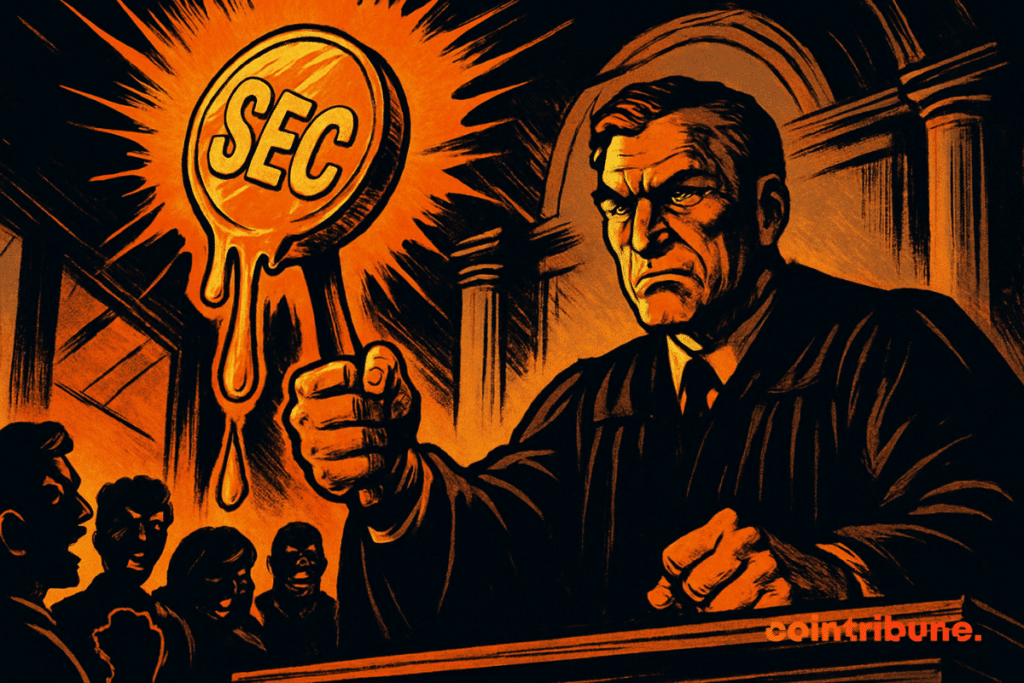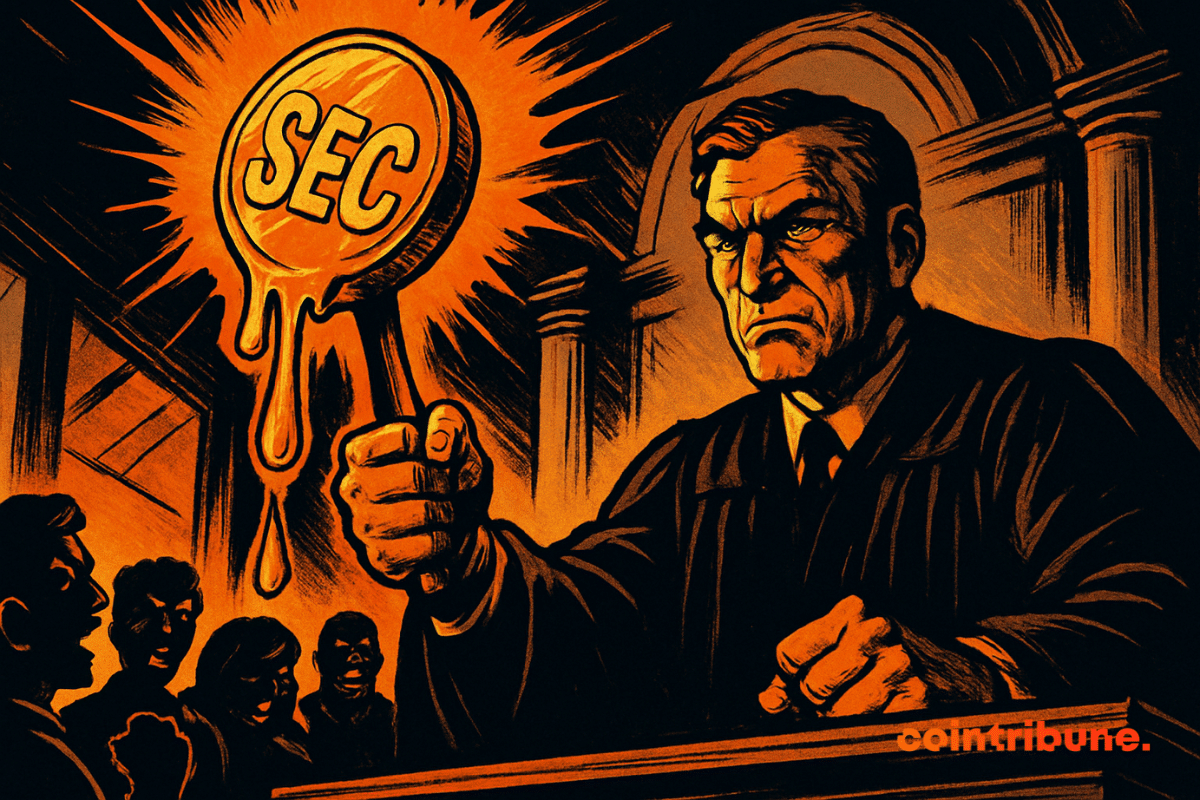6:12 hours
7
min at reading ▪
The declaration of employees of the Securities and Stock Exchange Commission (SEC) was divided into a crypto ecosystem for liquid downloads. Some consider this to be a positive signal that can support institutional and wide public acceptance, while others point to the main risks, uncertainty and legal obstacles.

In short
- SEC employees claim that liquid storage assets are not securities, but the deficiencies have been maintained with regulatory uncertainty in the crypto space.
- Commissioner Crenshaw warns that orientation is incomplete, unrestrained and that in terms of conformity does not offer a real security network.
- The leaders in the field emphasize the risks associated with resteuroge, causing the cross chain and synthetic tokens, due to lack of clear regulation.
- Tax rules for remuneration of remuneration remain vague, while legal matters and efforts to defense are aimed at gaining fairer policies.
The guidelines that leave skeptical
According to this position, liquid storage and assets associated with it are not considered securities within the meaning of the agency regulations. However, this unclear non -stating has aroused a contrasting reaction, emphasizing the gray area surrounding one of the most popular segments of decentralized finances.
Commissioner SEC, Caroline Crenshaw, strongly criticized this text and believed that it would not reflect the true complexity of the regulatory framework.
Unfortunately, as far as the recent recent statement of the division is concerned, the conclusions of the vague generalization, which cannot be easily used for the services of the real world.
Cershaw
Crenshaw also pointed to two main gaps in DSA employees’ instructions: on the one hand controversial demands related to the operating framework of liquid storage; On the other hand, too conditioned legal conclusions, which makes the guide unreliable in compliance with regulations.
Crenshaw explained that any evoking activity that does not correspond to the conditions of directives would be excluded from its definition. The SEC leader therefore claimed that employees’ statements do not provide a necessary security network or full supervision of activities.
It also stipulated that this orientation does not represent the official position of drought, but only a personal view of a member of its employee. Therefore, it called on the public to consider this guide to be a simple preventive measure, not an official regulatory document.
The head of institutional betting on the marinade burned in this respect and confirmed that these “guidelines are not law” and remain the subject of the debate. He also urged the entire sector to cooperate to achieve positive regulatory results.
Regulatory uncertainty floats on the model storage models
Unlike traditional storage, liquid storage allows users to maintain the use of their resources while receiving rewards. Specifically, when they put the tokens into the stuking, they receive in exchange by re -use for other operations for other operations.
However, platforms offering liquid storage use various technical and operating approaches. As Caroline Crenshaw pointed out, directions formulated by SEC employees do not necessarily cover all these models.
Lido Labs, Sam Kim, also recorded the existence of regulatory shadow areas related to several key areas such as “restoking”, “standing chain” or other betting financial products. According to him, these aspects will require further clarification of the authorities.
Regarding its part, Michael Hubbard, Director of Sol Strategies strategy, believes that pulling networks that are limited to simple administrative tasks such as income emissions for one, without the promise of yield, can be given current rules. However, he warns that these orientations remain strict and that any deviation from this framework could change the regulatory collection of these activities.
Stoking Awards, Tax Assumination and Risks associated with Stoking Liquid
In addition to regulatory uncertainties, the SEC decent statement does not provide a clear response to Stuking prices.
Here are the main points of attention on this topic:
- Uncertainty at the time of taxation: It is not clearly determined if stuking rewards must be taxed after acceptance or only during their sale.
- Current court proceedings: Courts are currently examining several cases.
- Political defense: groups representing an industrial campaign with Congress in order to obtain fairer tax rules to support the growth growth.
- Obstacle associated with funds: Concomitant taxation concerning funds creates difficulty in integrating stuking into these funds (ETF).
In addition, former Chief of Staff Dri Amanda Fischer compared liquid planting with certain risk financial measures, which in 2008 caused the bankruptcy Lehman Brothers.
On X (formerly Twitter), Fischer warned against the risk of great financial shock if this mechanism is not properly supervised. She said that the offer of the synthetic version of the asset is as a reproduction of Lehman Brothers, which reused customers’ investment to provide high risk operations.
According to her, liquid hundreds could pose a similar threat to market stability if it escapes strict regulations. It also insisted on the risks associated with the dependence on the tokens emitters, especially with possible delay in their broadcasting, vulnerability in the face of hacks and other technical problems that will probably affect the crypto market as a whole. Finally, in a recent report, Suchá himself expressed concerns about liquid evocation and emphasized the legal risks associated with it.
Maximize your Cointribne experience with our “Read to Earn” program! For each article you read, get points and approach exclusive rewards. Sign up now and start to accumulate benefits.
James Godstime is a crypto journalist and market analyst with more than three years of experience in Krypto, Web3 and Finance. It simplifies complex and technical ideas to engage the reader. Outside of work, he likes football and tennis that he watches passionately.
Renunciation
The words and opinions expressed in this article are involved only by their author and should not be considered investment counseling. Do your own research before any investment decision.

